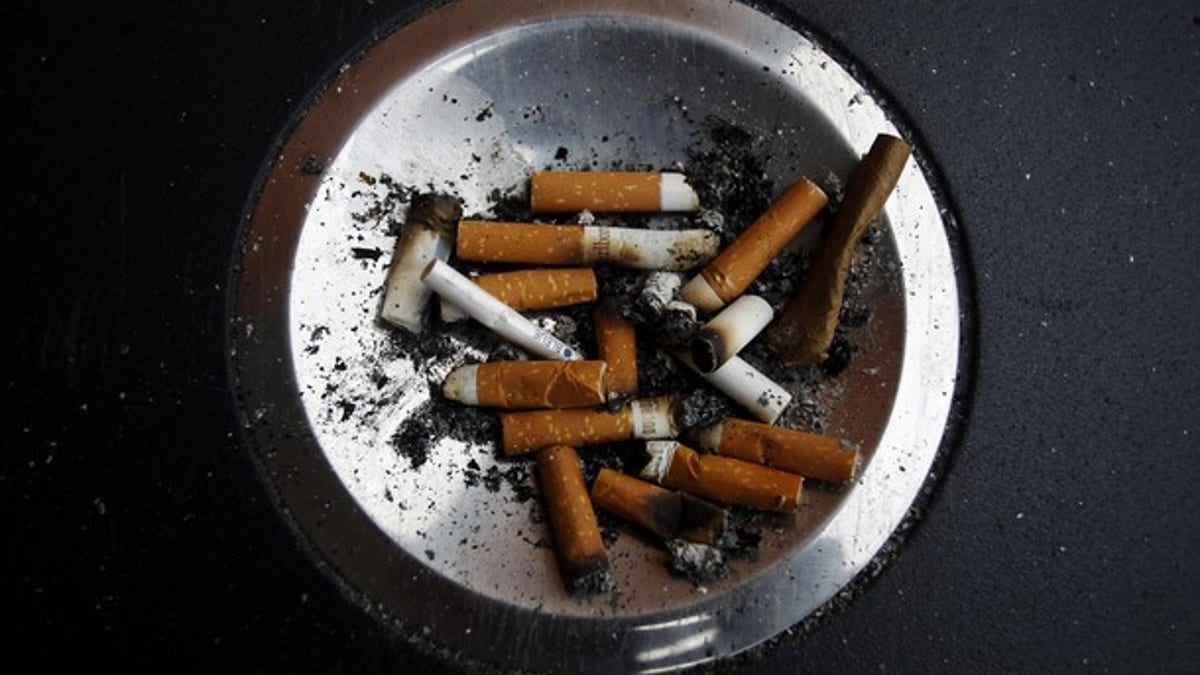
Cigarette butts are left in an ashtray at Atocha train station in Madrid January 1, 2011. A new Spanish anti-smoking law will take effect on January 2 that will prohibit smoking in all enclosed spaces as well outside hospitals, at playgrounds and schools. The Spanish Socialist government wants to put the country in line with the European Union's strictest anti-smoking nations. REUTERS/Susana Vera (SPAIN - Tags: SOCIETY POLITICS) (Reuters)
Despite earlier concerns, quitting smoking in the few weeks before a surgery doesn't seem risky for patients, according to a new study.
Earlier work had hinted that kicking the habit might increase the risk of breathing problems and other complications after an operation, and some doctors advise patients not to quit close to their surgery date.
The message from the new report, however, is that "anytime is a good time" when it comes to quitting, said Dr. David Warner of the Mayo Clinic in Rochester, Minnesota.
"We have people that are telling patients to keep smoking because it's dangerous to quit," added Warner, who wasn't involved in the new research. "It's not only wrong but it has real practical implications."
Doctors say that surgery presents a unique opportunity to get smokers to quit for the long run. After all, for every surgery there's a certain window during which it is impossible for patients to light up.
But while researchers agree that encouraging patients to quit more than two months before their operation is both safe and can cut down on the risk of surgery complications, the effect of quitting within that two-month window has been more controversial.
To address that controversy, Dr. Peter Hajek of Barts and the London School of Medicine and Dentistry in the UK and his colleagues combined data from nine previous studies with a total of almost 900 patients. Each of those studies had compared the rate of complications following a surgery in smokers who stopped smoking eight weeks or less before surgery and those who didn't quit.
One of the nine studies found that recent quitters experienced fewer problems after surgery than non-quitters, and none showed that quitters were worse off. Taken together, the results showed no difference in complication rates in quitters and non-quitters for all types of complications and all surgeries combined.
Hajek said that although more studies are needed on the effect of quitting in this eight-week window, the findings debunk the idea that it's dangerous to stop smoking leading up to surgery.
"The theory on which this was based is wrong, that is clear," he told Reuters Health. "We are pretty sure that until some new evidence of harm comes along...there is no sign of any danger."
Though it might not be dangerous, quitting smoking soon before surgery doesn't seem to make it any safer, either. But if patients drop the smokes two months or more in advance, that will reduce the number of complications, Hajek said.
"It's certainly better if (patients) quit earlier," he told Reuters Health.
Of course, researchers are quick to point out, quitting smoking at any point in time will have long-term health benefits.
Warner said that the review, published in the Archives of Internal Medicine, did have its limitations. For example, combining all possible surgery complications together doesn't take into account the fact that smoking, or quitting smoking, might matter more for certain common complications, such as breathing problems, than for others.
Still, Warner said, "I wholeheartedly agree with the result."
But Dr. Philip Devereaux, a heart doctor and epidemiologist at McMaster University in Ontario, who wrote a commentary on the study, said the finding was far from definitive.
"It's not conclusively shown that it is safe to stop smoking prior to surgery," he told Reuters Health. For doctors, he said, "If you're seeing the patient just a few days before surgery, it's not clear at all what the optimal timing is" to recommend that the patient quit smoking.
In a disclosure with the paper, Hajek and one of his colleagues state that they have received research funding from multiple pharmaceutical companies that make smoking cessation drugs.
Hajek said that until there is more evidence on the relationship between quitting smoking and surgery complications, doctors should be encouraging patients to quit no matter how close to their surgery.
"Quit early if you can," Hajek said, "but if you can't, quitting late is also alright."







































